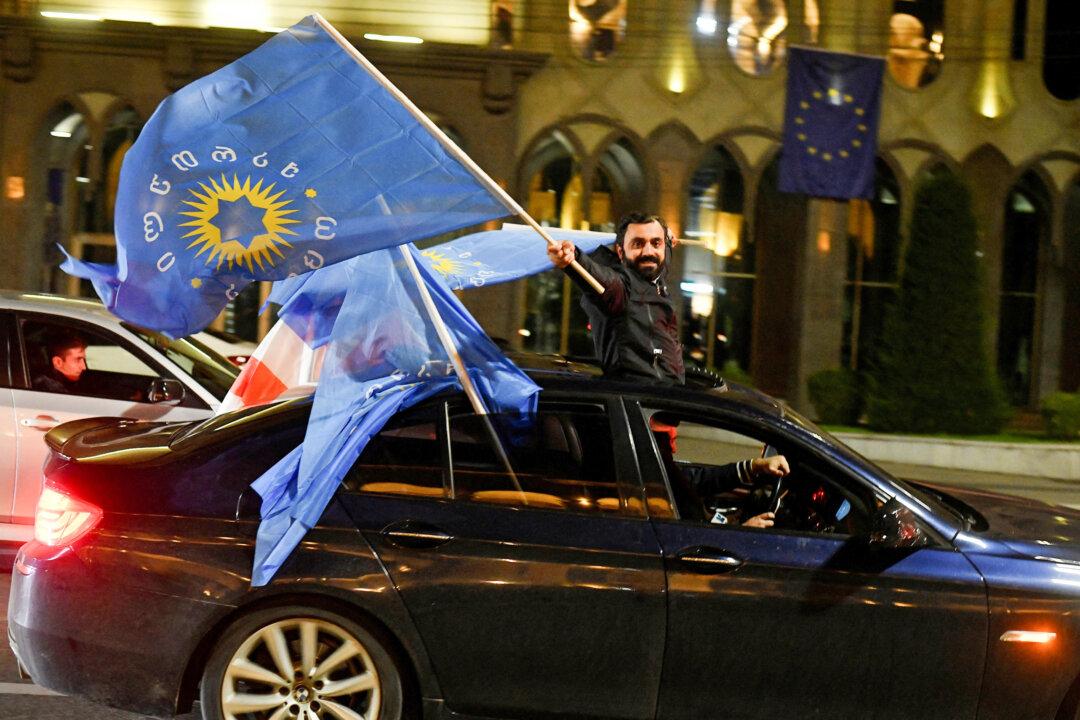The ruling Georgian Dream party claimed victory in Georgia’s parliamentary elections on Oct. 27 with nearly 54 percent of the vote, prompting Georgian President Salome Zourabichvili to call for public protests amid opposition claims that the result favors Russia.
Georgian Dream will take 89 seats in Parliament, determining the country’s geopolitical trajectory in a fourth term in office. Four pro-Western opposition parties received 61 seats in total.





